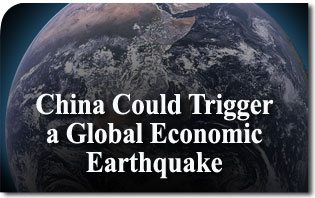 BBC news business editor Robert Peston has analyzed how China’s economic slowdown can lead to a ‘third wave’ in the economic crisis that shook the world in 2008, G1 reported.
BBC news business editor Robert Peston has analyzed how China’s economic slowdown can lead to a ‘third wave’ in the economic crisis that shook the world in 2008, G1 reported.
The Chinese city of Wuhan is a case in point: it grew more than any other city in China over the last three decades. But today it symbolizes the fact that the Chinese economic ‘miracle’ is drawing to an end and poses a serious risk to world markets.
Wuhan’s mayor, Tang Liangzhi is spending nearly $400 billion to turn the city of 10 million into a megalopolis able to challenge Shanghai’s second place in the pecking order of Chinese cities.
Hundreds of residential buildings, access roads, bridges, railways, a subway system and an international airport are being built in Wuhan, among other gigantic projects.
Over the last few years, China built a new skyscraper every five days, more than 30 airports, subway systems in 25 cities and the world’s longest bridges in addition to large-scale commercial real estate projects. Wuhan’s train terminal is missing only the moth balls.
However, this growth appears as the fruit of an imbalanced economy lacking sustainable sources of growth.
The economic crisis that began in 2007 and 2008 had catastrophic results for China, largely dependent on its exports to the West.
Hordes of poor Chinese migrants have been forced to return to their villages. In order to avoid street riots, the Chinese government has freed up roughly $700 billion in spending and has ordered banks to lend money as if there is no tomorrow.
The gargantuan rotten investments such as ghost cities, carless highways and public illumination on nonexistent streets, added to boundless and irrecoverable loans can only end in catastrophe.
Fitch analyst Charlene Chu says that no one knows the size of the banking sector’s overall debt. In 2008 it was said to be $10 trillion, but today it stands between $24 to 25 trillion.
This increase is equivalent to the whole American banking sector, which took more than one century to build.
There are no exceptions in the history of finance: loans on this scale beckon massive future insolvency. When that happens, no one can imagine the size of the earthquake that may topple everything.
The Chinese economic miracle could thus have a global outcome: a crisis that would shake not only China but the whole world.

